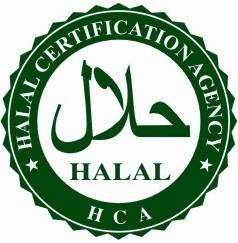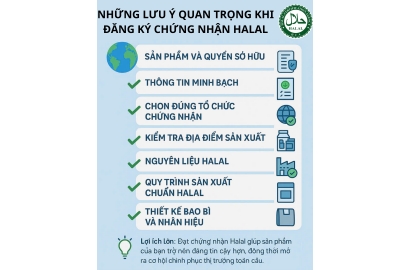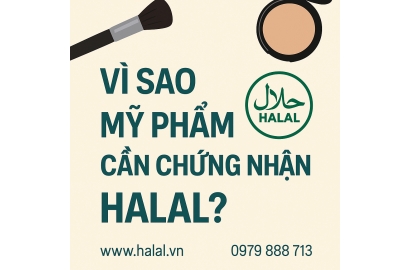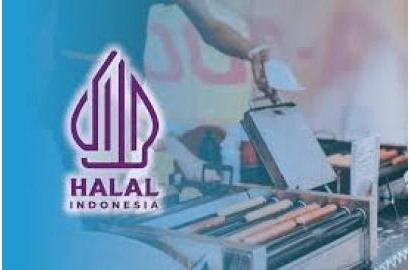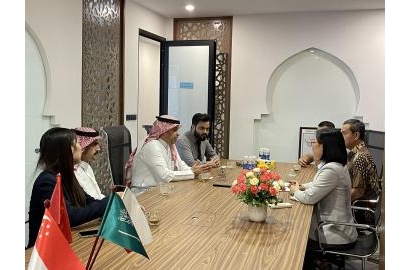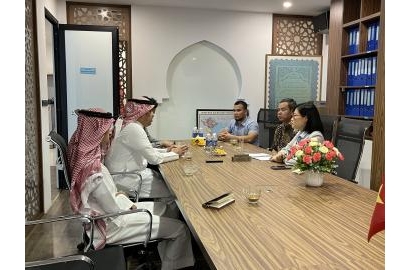- Home // News & Events // News
News
$ 3.6 trillion
According to the Vietnam Chamber of Commerce and Industry (VCCI), the Halal industry provides products and services for Muslims, which are expected to generate revenues of $ 3.6 trillion by 2021. There are several key markets for Vietnamese goods such as Dubai, Kuwait, Malaysia and Indonesia.
Especially, this market group is very fond of Vietnamese agro-forestry and fishery products. Ashraf A. Mahat, Director of the Dubai Market Development Department, said that in 2017, a company that buys 20% of Vietnam's pepper output for sale in central markets. Dubai.
However, the market share of Vietnamese goods in many Muslim markets is very modest. Typically, with the UAE, the country has large purchasing power and the demand for imported goods is diverse with import turnover in 2017 about $ 265 billion. While Vietnam's export turnover in 2017 reached over $ 5 billion, accounting for less than 2% of the market share.
According to Mr. Jasem Abomarzouq, Deputy Chief of State of Kuwait, In Ho Chi Minh City, Kuwait businesses are more interested in the Vietnamese market. "I look forward to more investors from Kuwait coming to Vietnam, as well as the desire for more Vietnamese goods to be available in our country. Vietnamese goods are of good quality, suitable for Muslim consumers in general and Kuwait in particular. But businesses need to have new international standards Halal to Kuwait, "- said Jasem Abomarzouq.
Confusion "brass"
In Vietnam, the service market currently has many organizations implementing Halal certification, mainly provided by Muslims. However, the state does not have strict regulations on the standards of a Halal certification organization.
Therefore, many seafood enterprises have recently reflected that some enterprises can not export products because of the Halal certificates they have in their hands that are not accepted by the Islamic market. Therefore, some enterprises have just been Halal certification for several months have to remake, both costly, time consuming, just cause annoyance.
In this regard, if the business is exporting to non-Islamic markets, the reporter of the Ministry of Industry and Trade, Nguyen Thi Ngoc Hang - representative of the Halal Certification Office - HCA Vietnam, said. , such as the United States, Europe ..., can use the certification of the unit is not recognized internationally. However, such certificates are not accepted by mainstream Islamic countries, rendering the exports impossible.
For example, for export to the Gulf Cooperation Council (GCC), the Halal certification body must be accredited by the GCC accreditation body as the GAC. In the United Arab Emirates (UAE) group of seven countries, certification bodies must be accredited by the ESMA, the UAE Quality Measurement Standard. into these markets. In Vietnam, HCA is the only Halal organization in Vietnam recognized internationally.
According to representatives of HCA, the standards of different Islamic countries need to export where required to separate certificates for each market. Each Muslim country has its own religious standards as well as its own Halal standards. In the world, Halal markets such as Malaysia and Indonesia have not recognized each other.
At present, ASEAN is in the process of harmonizing standards with the aim of enterprises only to implement a standard, a certificate that can be exported to the whole region. HCA also participates in this process. However, this harmonization process of ASEAN is only at the level of the countries have given the general guidelines for Halal certification, but not the common standards - said Hang.
-
Book room
